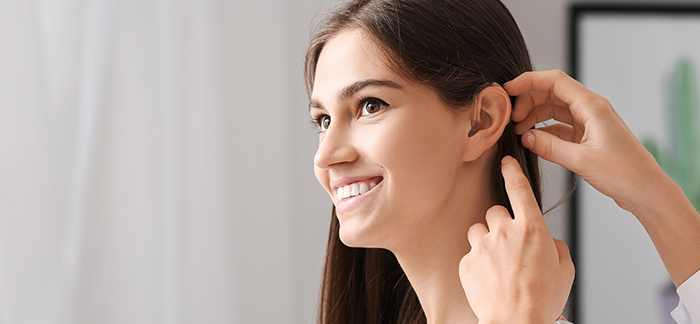
Do you have trouble hearing people talk when you are in a crowded room, or are you constantly asking your family members to repeat what they say?
Surprisingly, and more often than not, hearing loss can go undetected by those suffering with the problem. This is because hearing loss is often a gradual process, therefore it is important to get your hearing checked on a regular basis, even when you think you are fine.
Hearing aids come with tremendous health benefits and are designed to help you live your best possible life and keep your brain fit.
Much like a vision test, regular hearing tests allows you to track changes in your hearing and make management adjustments as required. Each hearing test is a baseline for all future tests, allowing your audiologist to instantly identify any changes or warning signs of hearing loss, including earwax build-up and noise-induced hearing loss.
Hearing loss is more common than you think - 65% of people with hearing loss are younger than 65 years old.
Studies indicate that good hearing can lower the risk of developing early dementia, partly because the ability to participate in social activities and interacting with other people is a key component to brain health. Therefore, hearing aids can not only improve one's ability to hear, but also restore the following brain functions:
- Working memory
- Selective attention
- Brain processing speed
With hearing aids, you’ll hear better, remember more, and process information faster!
Wearing a hearing aid can reduce the risk of the following conditions:
- Dementia (including Alzheimer’s)
- Depression or anxiety
- Fall-related injuries
Better hearing can help you:
• Hear what people are saying in meetings/social gatherings
• Feel less confused and tired
• Feel more confident
• Use your cell phone and devices more easily
What to Expect During a hearing screening?

The whole process should take about 40 minutes, and is painless. Once you arrive for your visit, your audiologist will discuss your hearing history to understand what factors have influenced your hearing, and also get more information on your personal hearing needs.
Next you will need to wear earphones for several different hearing tests to be conducted. These tests are non-invasive and will test your ability to hear short tones at different volumes, and whether or not you can hear different volumes of high-pitched tones and low-pitched tones in each ear.
The results can show whether you have hearing loss in one or both ears and how much hearing loss you have suffered.
Even though you can’t restore hearing loss, there are ways to make up for it and protect the hearing that you still have.
After your audiologist has interpreted your results of your hearing screening, he/she will take you through your options, should you require a hearing aid.
Fortunately, todays’ hearing aids are amazingly powerful and much smaller than that of the old!
If you have any questions about hearing aids and how they can keep your brain healthy, please contact us. At Spec-Savers, we are now offering free hearing screenings and provide everything you need for improved hearing. Only selected branches offer this service – they include: Spec-Savers Garden Route Mall, Spec-Savers Centurion, Spec-Saves Walmer Park, Spec-Savers Nelspruit, and Spec-Savers Kolonnade.
Date Published: 14 January 2022
